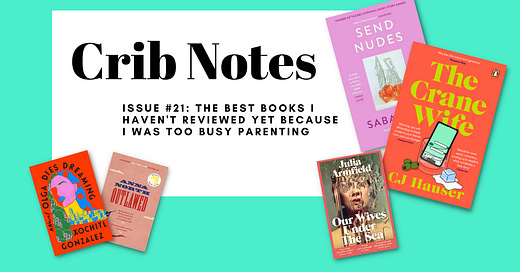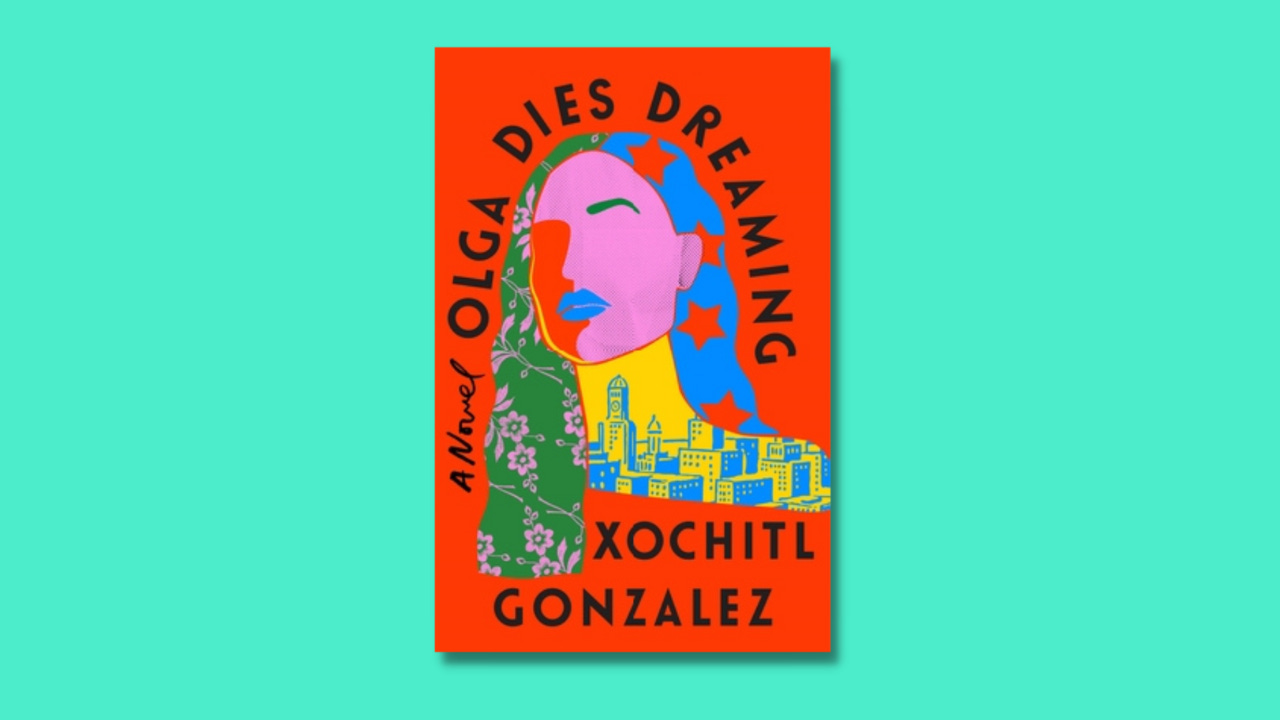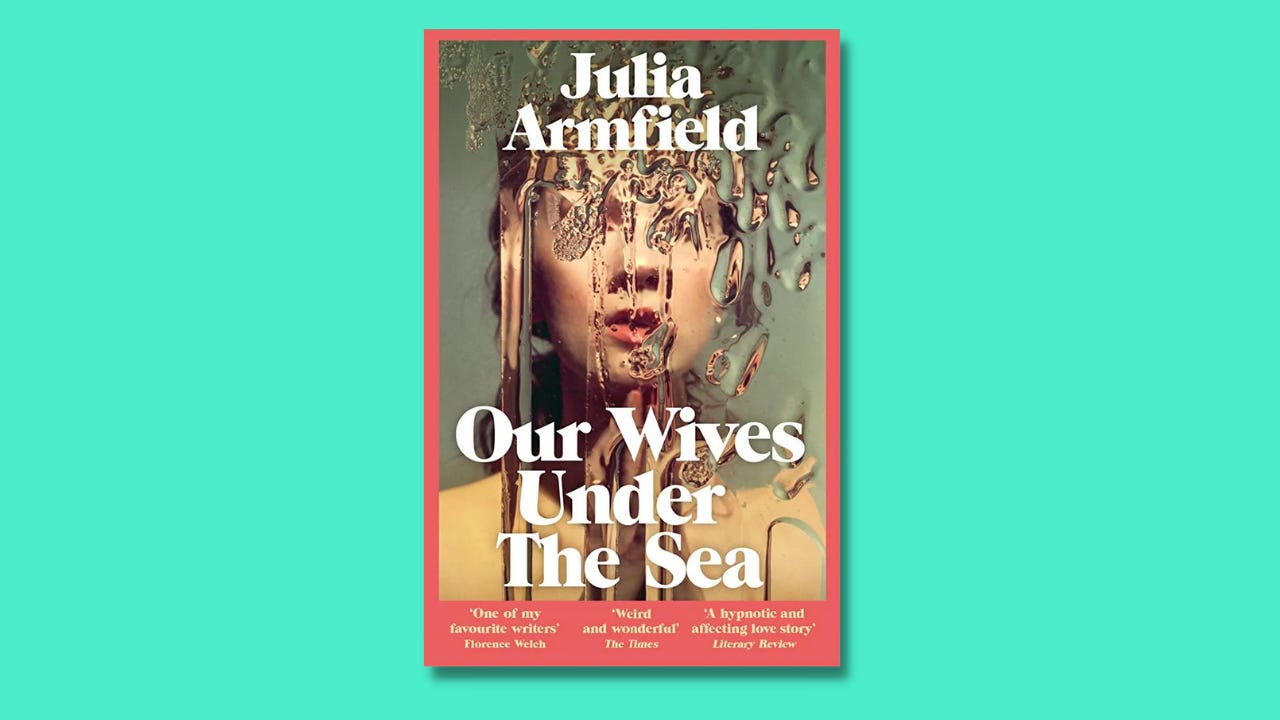Crib Notes: The Best Books I Haven't Reviewed Yet Because I Was Too Busy Parenting
Reading in the margins of motherhood.
Crib Notes is written on borrowed time: I have edited previous issues waiting in A&E with a feverish toddler; standing up at my kitchen counter with a newborn in a sling, and on my phone during interminable bedtimes. Most weeks, the online Sainsburys shop takes priority! Consequently, Crib Notes is not as frequent as I would like it to be. And so, for this month’s Crib Notes, I am playing catch up: I have chosen five fabulous books which I have read and loved over the last year, but have not yet had a chance to tell you about. Enjoy!
How To Buy Your Books: I recommend purchasing your books from family-run, indie bookshop Storytellers Inc. Click here to shop or email Katie and quote ‘cribnotes’ to receive free postage on singles orders and 10% off orders of more than two titles.
The New Best Friend
The Crane Wife by C.J. Hauser
In July 2019, C.J. Hauser published an essay in the Paris Review about calling off her engagement ten days before her wedding. Writing about her fiancé’s gaslighting, cheating and lack of affection, Hauser drew on a Japanese folktale about a crane who fell in love with a man and plucked out all of her feathers so that he would marry her. ‘Becoming a woman was so much self-erasing work’ Hauser wrote and, indeed, she had learned to erase her own needs entirely, believing that this made her more worthy of her partner’s love. The essay – which was full of the kind of sentences you want to screenshot immediately – went viral. Now, Hauser has expanded her original piece, ‘The Crane Wife’, into a full-length book. In this ‘memoir-in-essays’, she excavates her romantic history, her closest friendships and family lore through the lens of the stories she loves. In ‘Hepburn Qua Hepburn’, she considers how the 1940 screwball comedy, The Philadelphia Story, romantically imprinted on her as a ‘kissing aspirant’ thirteen-year-old. In another essay, she looks back at her experiments using The X-Files as an instruction manual for compatibility, believing that Agents Mulder and Scully represented the ‘spiciest’, most ‘not boring’, ‘truest’ kind of love. In ‘The Second Mrs. de Winter’, Hauser explores her relationship with a divorced man via Rebecca, Daphne du Maurier’s gothic masterpiece about a woman obsessed by her new husband’s dead wife. The Crane Wife is simultaneously elegant and tongue-in-cheek; perceptive and goofy. Hauser is all too aware of the narratives we tell ourselves to make sense of our lives, and is candid about her misreadings and mistakes. This is a very special book about trying-and-failing, and the many facets of love.
When To Read It: Looking after very young children can sometimes feel desperately lonely. Last summer, I felt as if I had been shipwrecked with my baby and toddler. The Crane Wife offered me the deep kindness and companionship I needed. Listening to CJ Hauser’s stories, whilst my youngest child slept in the buggy, was like time spent with a good friend.
How To Read It: I opted for the audiobook, and loved Hauser's narration. Meanwhile, the paperback edition (320 pages) is out from Penguin on July 13th. Buy it here.
What To Read Next: I spoke to BookBar's Chrissy Ryan and Storytellers Inc’s Katie Clapham. They both recommend Emilie Pine’s Notes to Self (I warn you, though, it is much sadder). Katie also suggested Dolly Alderton’s Everything I Know About Love, as a similarly down-to-earth read.
The Big-Hearted Book
Olga Dies Dreaming by Xochitl Gonzales
Olga Dies Dreaming is a passionate, punch-packing novel about love, resistance and the relationship between a Puerto Rican brother and sister from Brooklyn. Olga Acevedo is an ambitious, self-made businesswoman; the number one wedding planner for Manhattan's social elite. Her brother, Prieto is a popular congressman. The siblings seem to be the epitome of the Latinx American Dream, but despite their glossy public lives, each has their own private demons. Olga feels disillusioned by money, fame and her no-strings affair with a rich, married, white man named Dick. Prieto grapples with corruption and his closeted sexuality. Meanwhile, their family history casts a dark shadow across all of this; twenty-seven-years earlier, their mother abandoned them to pursue her militant political agenda. The whereabouts of Blanca Acevedo are unknown, but she has means of making her presence – and her dangerous intentions – known to her children. As Hurricane Maria nears Puerto Rico, its rumblings upend Olga and Prieto’s lives, shaking their secrets out into the open. Olga Dies Dreaming hums with big ideas: it is a vibrant exploration of power, race, class and family ties. Pleasingly, it is also a love story (Olga falls for a fellow Brooklynite, a much-needed change from the über-privileged Dick). And whilst the novel is undeniably political, it is enormously page-turning too.
When To Read It: When I'm very tired, my reading requirements are simple: I want a book with a juicy plot and a big-heart. I listened to Olga Dies Dreaming during a spate of sleepless nights with an unsettled baby. It not only kept me entertained, but its generous spirit and emotionally-satisfying story recharged my maternal batteries too.
Sensitive Contents: Sexual assault, brief mentions of suicide.
How To Read It: I loved the audiobook, which uses multiple narrators to bring Olga, Prieto and Blanca to life. Olga Dies Dreaming is also available in paperback (buy it here). At 384 pages, however, you may want to consider the Kindle edition if you are juggling a book and a baby.
What To Read Next: If you are looking for another absorbing novel to get stuck into, I highly recommend Gabrielle Zevin’s Tomorrow and Tomorrow and Tomorrow (read my review here) or Detransition, Baby by Torrey Peters.
The Short Stories
Send Nudes by Saba Sams
A few months ago I read an essay by Saba Sams on becoming a mother at the age of twenty-two and fell in love with her writing instantly. What wowed me was Sams’ ability to capture the slippery, non-neatness of maternal feeling. I wanted more and sought out her debut collection of short stories. Send Nudes is a raw but radiant look at womanhood. Sams probes into the dark corners that many of us would rather leave untouched: the shame that sticks to us in girlhood and stays with us; the humiliation we are made to feel about our desires; the treacherousness of sexual attraction. In ‘The Mothers and their Daughters’, two girls wander a festival ground, their fierce friendship tested for the first time when they meet an older boy. The titular story is about a woman whose hatred for her body is washed clean when she contemplates sending a naked picture to a stranger. In 'Blue4Eva', the tensions between teenage step-sisters play out against the backdrop of the Balearic Islands. ‘Here Alone’ digs into lacklustre one-night-stands and the cruelty of ghosting, whilst 'The Bread' is about the emotional fallout of an abortion. Within each of these stories is a bright flare of compassion; a bloom of tenderness. The stories hinge on tiny acts of liberation – a decision not to text a man back or the choice not to compete with another girl – and this is what makes the collection shine. Send Nudes is a vivid, visceral read. For me it was a cathartic one too. The morning after I finished the final story, I had a sense of release, the way one feels after a big cry.
When to Read This Book: I have written before about my tendency to be short-story-phobic. Increasingly, though, stories are becoming my favourite way of reading in the margins of the mental-load. Reading one or two stories during a calm moment feels more achievable than trying to return to a novel when the rhythm of life is an unpredictable stop-start. And, as I've suggested, Send Nudes is a gut-punch of a book, but, read at the right moment, it can feel a bit like therapy.
How to Read It: I read Send Nudes on my Kindle, but Bloomsbury’s paperback edition is a manageably lightweight 224 pages (buy it here).
Sensitive Content: There are references to miscarriage in ‘Tinderloin’; sexual assault in ‘Overnight’, and abortion in ‘The Bread’.
What to Read Next: Send Nudes reminded me of Lara William’s Supper Club. Read my review from the November 2020 issue of Crib Notes here.
The Romping Read
Outlawed by Anna North
Buckle up! Anna North’s Outlawed is a script-flipping, feminist joyride through the Wild West! A fictional nineteenth-century America has been ravaged by The Great Flu and it is the duty of women to replenish the population by childbearing. Those who cannot conceive are believed to be cursed. Our heroine, Ada, is a young midwife who fails to become pregnant within the first year of her marriage. Gossip and suspicion bubbles amongst the townspeople and, when another girl loses her baby, they want Ada hanged for witchcraft. Ada has no choice but to go on the run. Enter the notorious Hole in the Wall Gang: a band of cross-dressing, gun-slinging, queer-cowgirls and non-binary outlaws. They are led by The Kid, a mysterious figure, with a flowered cape and a vision of a ‘promised land’ for outlawed women. Though Ada is not a natural bandit (she can’t ride a horse and is a terrible shot), her knowledge of anatomy and ailments earns her a place in the gang. What follows is a commotion of botched shoot-’em-ups; seductions in saloon bars, and explosives made from horse dung. All the while, Ada is determined to draw on what she knows about midwifery to save as many infertile women as possible. Galloping along at a heart-in-mouth pace, Outlawed is barrels of fun. I bloody loved it.
When to Read It: I read Outlawed during a week in which my eldest son threw his shoes in the toilet, poured water on a pile of books and emptied a fancy facial serum onto the floor. The novel offered me a riotous escape from the chaos of child-wrangling. It is also an accessible read; easy to return to between moments of toddler defiance.
Sensitive Content: Miscarriage, sexual assault and suicide are all mentioned in Outlawed.
How to Read It: I read the paperback edition (a manageable 272 pages), which is available from Weidenfeld and Nicolson– buy it here.
What to Read Next: I loved Anna North’s provocative debut The Life and Death of Sophie Stark. For more feminist speculative fiction, try The Power by Naomi Alderman. For more Westerns-With-A-Twist, Katie Clapham recommends True Grit and The Sisters Brothers.
The Literary Obsession
Our Wives Under the Sea by Julia Armfield
Reading Julia Armfield’s work is always a spine-tingling thrill. Her short stories are a beguiling blend of the mythic, contemporary and Gothic. It is unsurprising, then, that Armfield’s first novel Our Wives Under the Sea is an unsettling shapeshifter of a book. Melding romance and horror, the novel is about a married couple, Leah and Miri, who are finally reunited after a deep-sea submarine mission went disastrously wrong. Leah might be physically present, however, but she seems disturbingly changed by her months underwater. Alternating between the two women’s voices, the novel gestures to the growing gulf between them. Leah’s chapters are a tense, trance-like account of her voyage down to the darkest reaches of the ocean. She does not mention her return to dry land. Meanwhile, in the fragile present, Miri tries to reconcile herself to the new silence in their marriage. But even as she tries to grasp at the life she and Leah once shared, Miri feels it slipping through her fingers like water. Our Wives Under the Sea is a murkily strange and shimmering novel about longing, loss and unknowableness.
When to Read It: I was tickled by the overlap between this novel and Octonauts, my sons’ favourite TV show (for those of you who, somehow, do not know, the programme features a crew of anthropomorphized deep-sea explorers). If 75% of your waking life is spent discussing vampire squid and marine trenches, you might choose to embrace the ‘Octo-obsession’ by reading Our Wives Under the Sea. More importantly, though, you should read this novel because it confirms Julia Armfield as an unmissable literary talent. I read the novel last winter, as I breastfed my baby through the night– it was a mesmeric and weirdly immersive experience.
How to Read It: Our Wives Under The Sea is available from Picador in a slim, 240-page paperback edition, which can easily be devoured over a few evenings. Buy it here.
What to Read Next: Laura Ingall’s Mrs Caliban, a novella from the 1980s about a depressed housewife who has an affair with an amphibious sea monster. I also love Armfield’s short story collection, salt, slow – read my review here.
Events
Raising Boys for a More Equal World: A Panel Discussion with Uju Asika, Kirstie Beaven and Elizabeth Morris
I am thrilled to be returning to Waterstones Gower Street on July 13th for an event with Uju Asika, author of Raising Boys Who Do Better: A Hopeful Guide for a New Generation and Kirstie Beaven, founder and editor of Sonshine magazine. Join us as we discuss how we can positively parent our sons, shift the status quo, and nurture them to become kind, compassionate men. We will be tackling big issues like consent, mental health and education, as well as everyday challenges, such as clothing and the language we use to talk about boyhood.
The event begins at 6.30pm and tickets are £7. Welcome drinks are served from 6pm. I would love to see you all there! Book now to avoid disappointment.
About Me
I'm Elizabeth. Before my eldest son was born, I worked as a book publicist and literary event manager. Now, I look after my two little boys, and read and write in the margins of motherhood.











